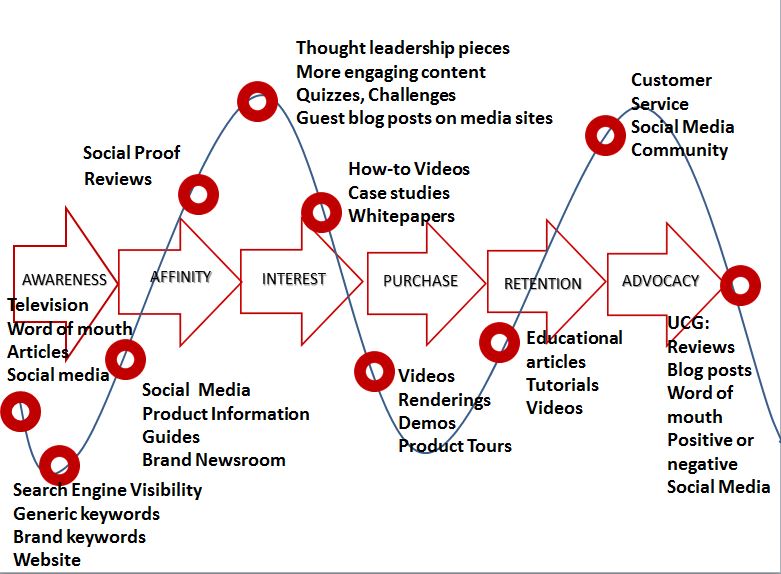By Mike Falkow 
Reputation management is a term that gets thrown around a lot nowadays and its meaning is sometimes lost in the noise. It’s often used to talk about “cleaning up Google results”. And while that is certainly part of the process, it’s not nearly the whole picture in 2023.
Reputation management definition
Reputation management, originally a Public Relations term, refers to the influencing, controlling, enhancing, or concealing of an individual’s or group’s reputation — especially online. The growth of the internet and social media led to a growing need to nurture and curate one’s digital reputation, with search results as a core part of that reputation. Online reputation management (sometimes abbreviated as ORM) focuses on the management of search engine results, the building of thought leadership campaigns, media visibility, and several other aspects that influence what the public sees when they look for you.
The difference between PR and Marketing
While digital marketing agencies often provide reputation management services, it is important to differentiate PR from marketing and understand the purposes of both. Marketing is the process of promoting, selling, and distributing a product or service, or the functions involved in moving goods from producer to consumer. As you can see, Marketing and Sales go hand in hand, while PR is a different kettle of fish. PR comes first Public Relations is the business of creating affinity, trust, and understanding for — and goodwill toward — a person, business, or institution. If you were to “cold call” and attempt to sell a product or service to a potential customer, there will be a fair amount of energy and time dedicated to bringing the person on the other end of the call up to an understanding of who you are, and what it is that you’re selling, and why they should be interested or even care about it. That falls under the department of sales. If you were to send some promotional item, like a postcard, or an email, or put up a billboard, etc, that would fall under the umbrella of marketing or advertising. But if you spent the time to educate your potential customers through a series of strategic blog posts, magazine articles, TV appearances, podcast interviews, and so on, you’re essentially warming the public up to your presence and letting them know who you are and what you provide — without trying to sell them anything. So with this groundwork having been laid well, that billboard or that cold call is going to go over a LOT better. They already know who you are and have a sense of goodwill or affinity for you or your company or product or service. A well-executed PR campaign makes the job of marketing and sales that much easier. It essentially greases the lines for the customer journey. 
How can you create a well-executed digital PR campaign?
There is no one-size-fits-all solution. It depends on what you’re offering as a product or service, and it depends entirely on who you are and what your story is. Crafting a story around you and your product or service is essential and will result in far more effective communication with your audience. Some questions to ask yourself when thinking about your digital PR campaign: Who are you? What is your background? How did you get involved with this product/service? What problem are you trying to solve for people by offering this product/service? Why is your approach any better than your competitors in the space? Some of these questions may also be asked of you when crafting a marketing campaign, but as noted earlier, they go hand-in-hand. How does Reputation Management fit it? Think of it this way — would you buy something from someone you didn’t trust? Trust is the number one thing that people purchase. Aside from the quality of the product, price, and some other factors, trust is at the top of the list. So imagine now that you’re going online to look up a company that you’re interested in doing business with and pandora’s box is opened up with negative reviews, negative mentions of the owner of the company, disgruntled former employees, and a host of other red flags. Obviously that strikes directly at your trust factor and is more than likely going to negatively affect your decision to do business with them. But imagine for a moment that you are the owner of that company and you haven’t spent much time or effort on building a more accurate representation of yourself or your company online. The internet can act as a digital witch hunt sometimes, and the bad news is that it is written in ink. There’s no erasing those negative comments from old employees with an axe to grind and nothing better to do with their time. There’s no erasing those scathing yelp or Glassdoor reviews from internet trolls and ‘digital Karens.’ A clever digital PR and online reputation management strategy will at the very least give the public a fair and balanced view of you, and given enough time depending on the size of the problem, will provide the public with a positive, truthful, and accurate view of you or your company.
For more Digital PR Tips subscribe to our newsletter.
Mike Falkow is the Creative Director of Meritus Media Inc. Trained in both Fine Art and Graphic Design, he’s worked in large agencies and consulted for Inc 500 and Fortune 1000 clients.

